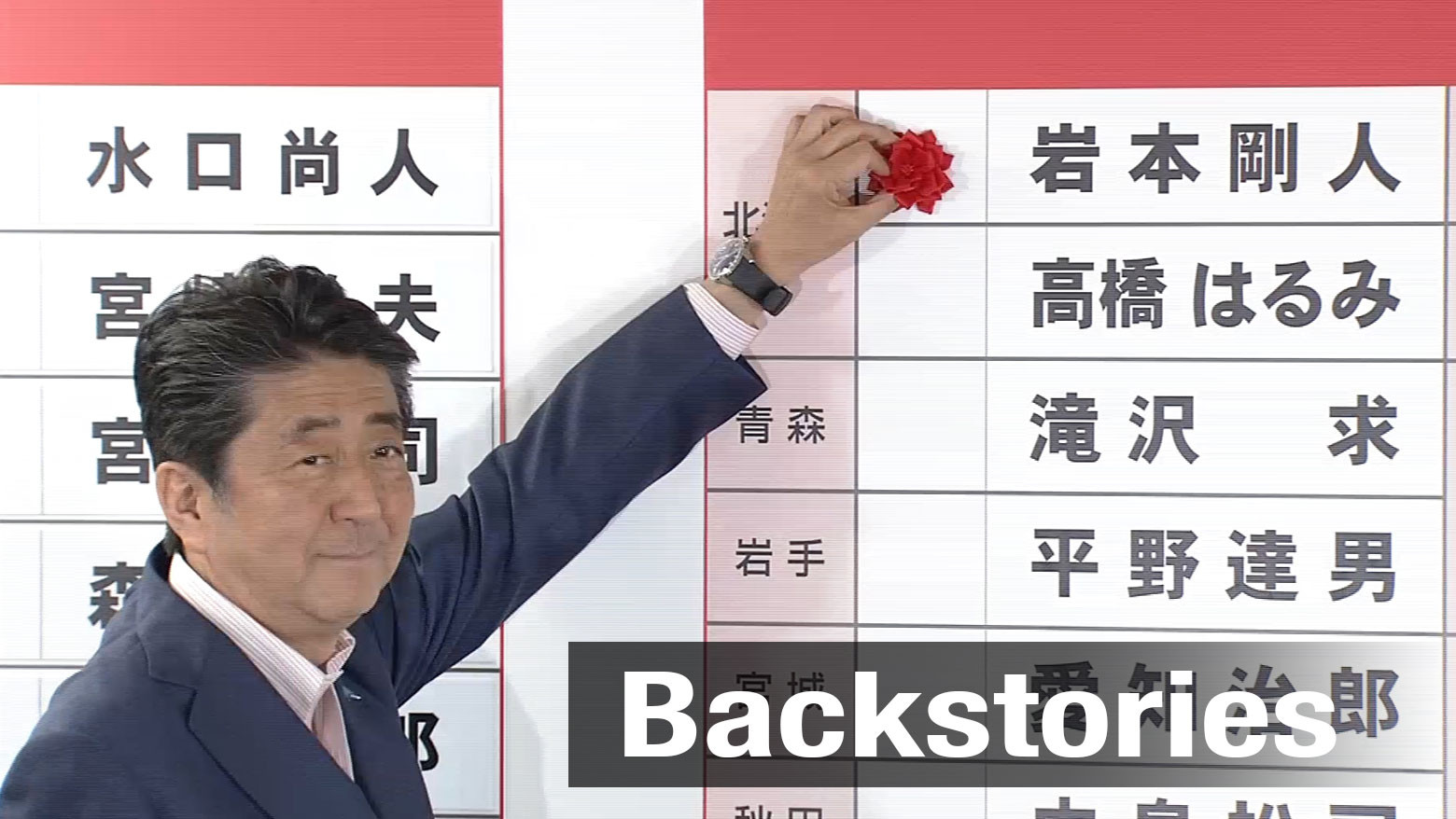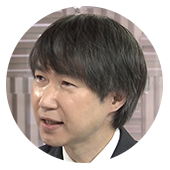Election results
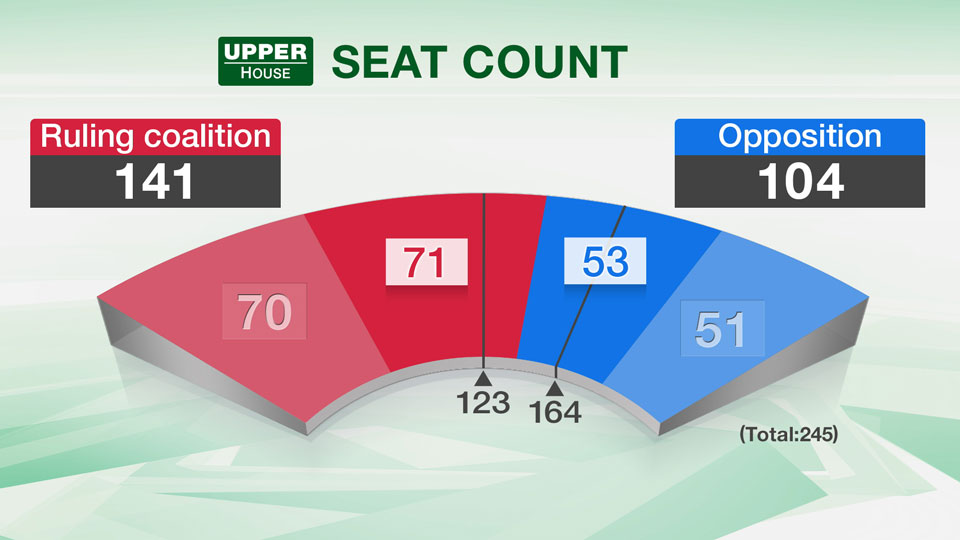
Prime Minister Shinzo Abe's Liberal Democratic Party and its junior partner, Komeito, secured 141 seats in the Upper Chamber. They won't return to the Diet at their pre-election strength.
Meanwhile, the opposition camp reached 104 seats. This includes their uncontested seats.
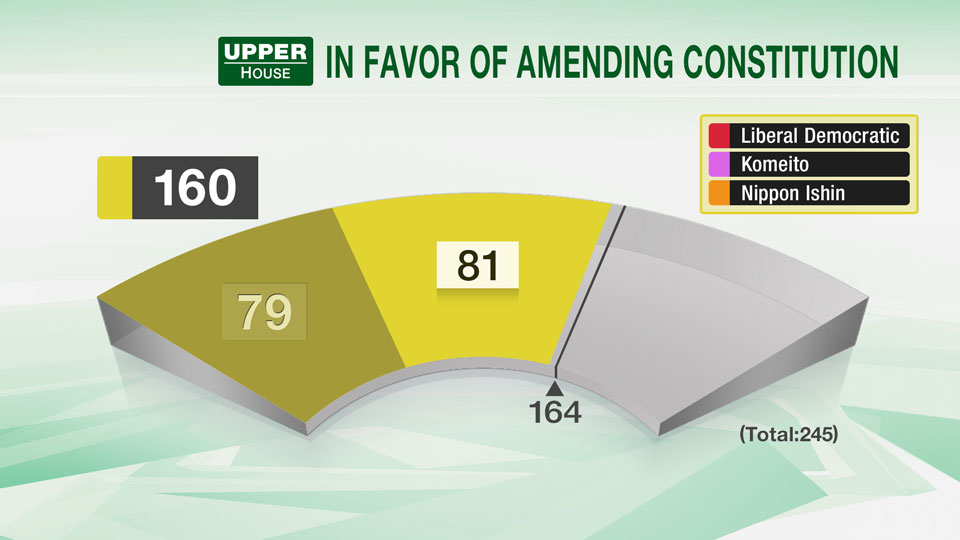
Parties and lawmakers including the ruling coalition, Nippon Ishin, and others who are in favor of amending the Constitution secured 160 seats. This is four seats short of the 164 required to make up two-thirds of the chamber. That's how much support they need in both houses to put a proposal for Constitutional amendment to a national referendum.
Abe's Liberal Democratic Party wants to revise the Constitution in four areas. One of the most contentious is adding a reference to Japan's Self-Defense Forces.
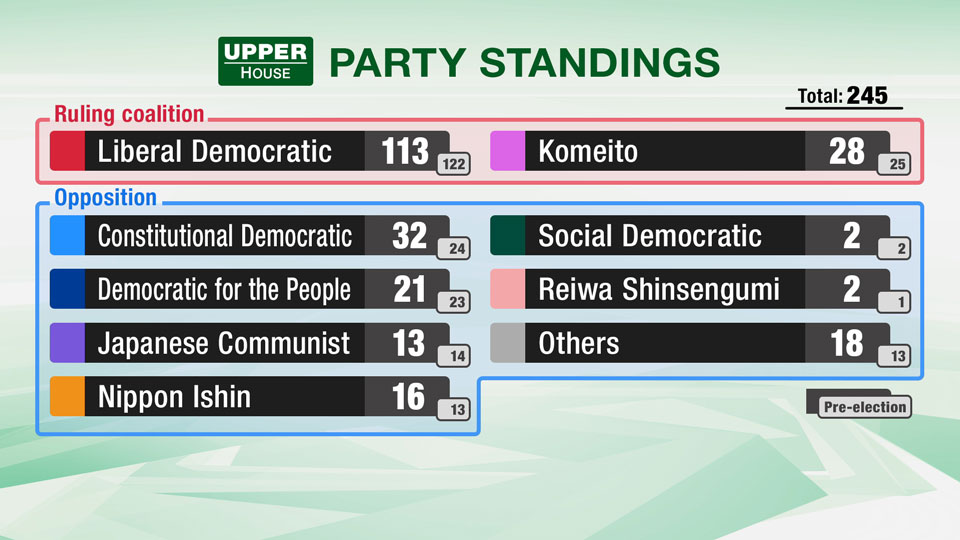
Abe gives news conference
Abe claimed at a news conference on Monday that the election results show Japanese people want political stability. He stressed his commitment to pursuing his political and diplomatic agenda including possible Constitutional revisions.
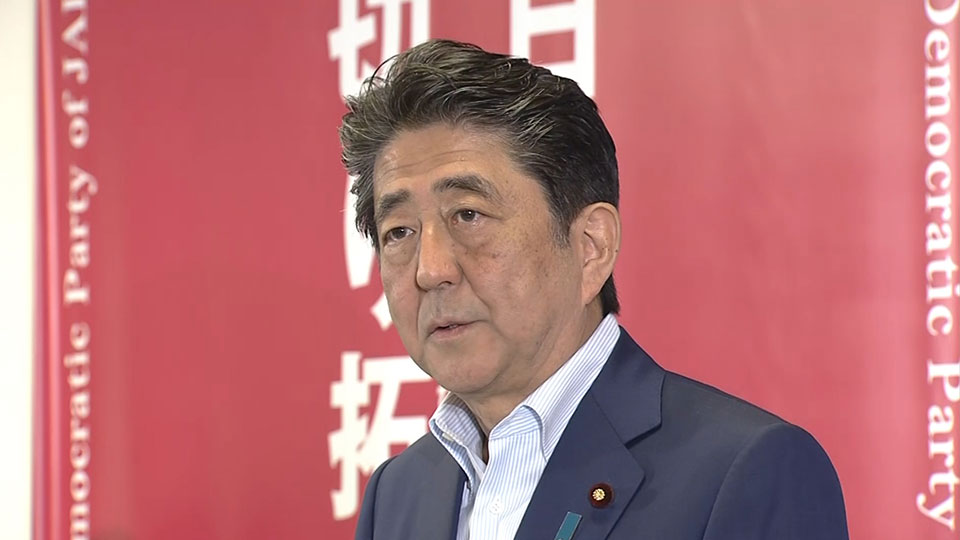
He offered two points regarding the amendments.
First, he claimed revising the Constitution is "the will of the people." At the same time he welcomed the idea of a Diet debate on the plan. So while expressing determination to make amendments, he was careful to say he was flexible toward discussions.
However, since Abe failed to maintain the two-thirds majority required to call a national referendum, he will need to cooperate with opposition parties if he wants to realize his goal. It will be difficult to get them onside.
Even the LDP's junior coalition partner Komeito is cautious about changes to Article 9, which renounces war. The party is backed by a powerful Buddhist group which preaches pacifism.
Moreover, despite Abe's claim, many Japanese people are not in fact interested in revising the Constitution, and among those who are, there are divisions on exactly what should be done.
Results and the future
The election proved to be something like a referendum on the ruling coalition. And Abe's LDP and Komeito together did win a majority of the contested seats. It suggests Japanese voters support them.
This is very different from the Upper House election of 2007, when a crushing defeat forced Abe to step down, and led to a change of government.
This time, Abe was more cautious.
His administration chose not to submit any bills that could divide people ahead of the vote.
And the tactic seems to have worked.
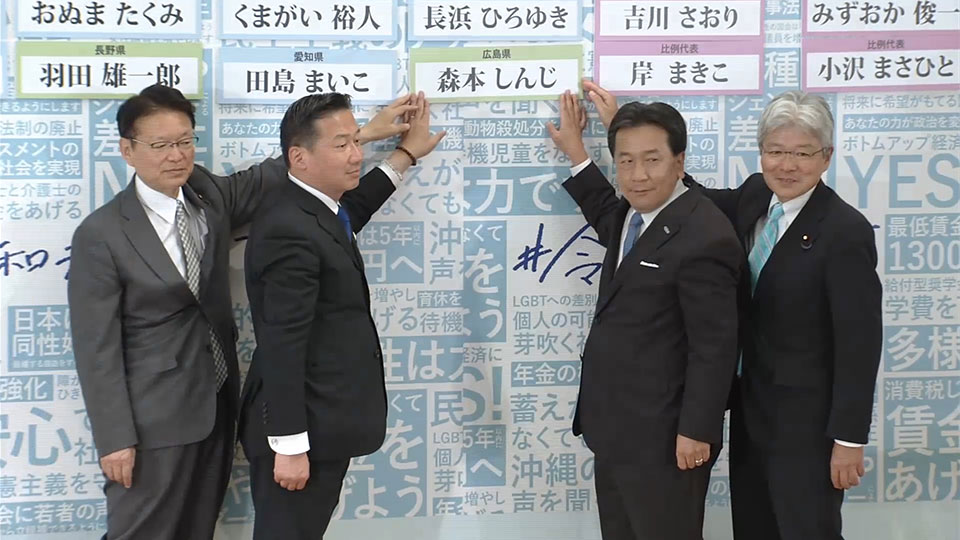
The election also benefited Japan's largest opposition group, the Constitutional Democratic Party. The party is only a couple of years old, but made major gains. Party president Yukio Edano says he wants to further strengthen cooperation among opposition groups, so in the next election they can try to become a governing force.
This may not be realistic. They still have a long way to go to defeat the LDP.
The magnitude of their challenge is reflected in the poor voter turnout in the electoral districts. At 48.80 percent, it was the second lowest for a national election in the post-war period. It seems the Japanese public has yet to see the opposition as a credible government.
